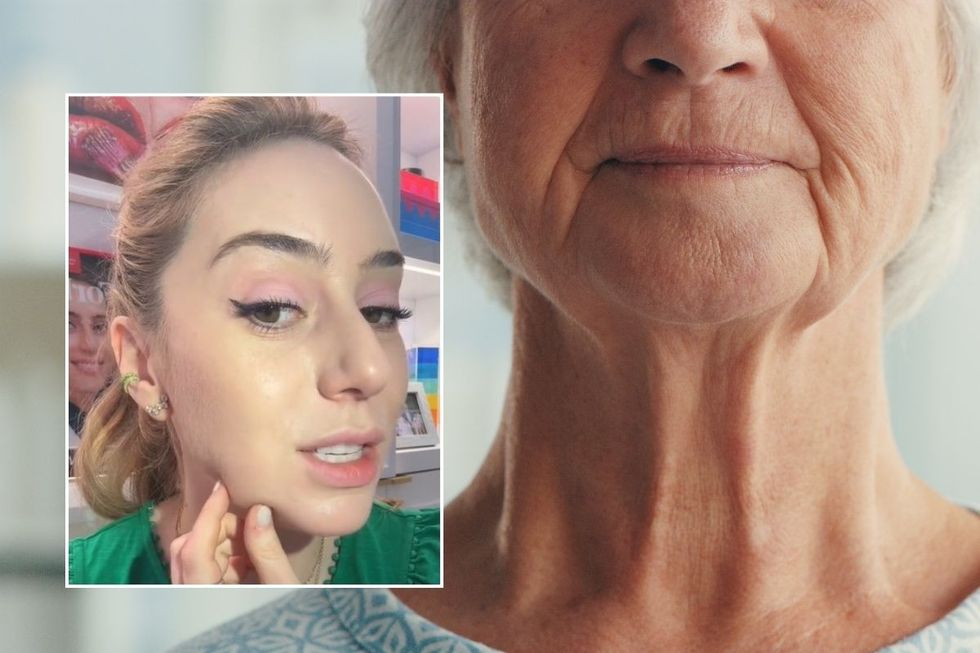Jowl prevention: 'I'm a dermatologist - there's one habit to avoid at all costs or risk sagging around the jawline'

The expert named several habits that lead the premature formation of jowls
Don't Miss
Most Read
Latest
As people age, their facial shape naturally changes, with fat accumulating in the neck area and skin beginning to sag as jaw muscles shrink.
Board-certified dermatologist Shereene Idriss has warned that certain every day habits can accelerate these changes in facial appearance.
Subconscious behaviours, particularly cheek biting, significantly alter facial structure and affect fat distribution, according to the expert.
Dr Idriss explained that jowls - "the jiggly wobbly piece of fat right along the outside part of your mouth" - develop earlier on certain people.

Dr Shereene Idriss shared several risk factors for jowls
|GETTY / TIKTOK / @SHEREENEIDRISS
However, cheekbiting can accelerate this process by compromising facial structure.
"You're getting rid of that structure over time that is holding your face up," explained Idriss, comparing the effect to buccal fat removal, a procedure she disapproves of.
Bone structure plays a crucial role in jowl formation, according to the dermatologist.
"If you start to narrow, which we all will, and recede, like we all will, jowls will get worse," she explained.
Those with naturally narrow jawlines face additional challenges in this regard.
"People who have a narrow jawline to begin with are kind of at a disadvantage unfortunately," noted Idriss.
Dr Idriss named several at-home solutions for managing jowl formation.
"At-home devices like micro-current devices are going to be helpful but only as long as you use them," she advised.
LATEST DEVELOPMENTS

Shereene's social media platforms offer a wealth of anti-ageing tips
|TIKTOK / DRSHEREENEIDRISS
Lymphatic drainage techniques can also provide benefits, though these are temporary.
The TLC Foundation for body-focused repetitive behaviours recommends various therapeutic techniques targeting emotional and behavioural components of habits like cheek-biting.
For those looking to break the habit, several management strategies are available, with therapeutic approaches offering the best results.
Alternative methods such as chewing gum and breathing techniques may provide temporary relief from cheek biting.










